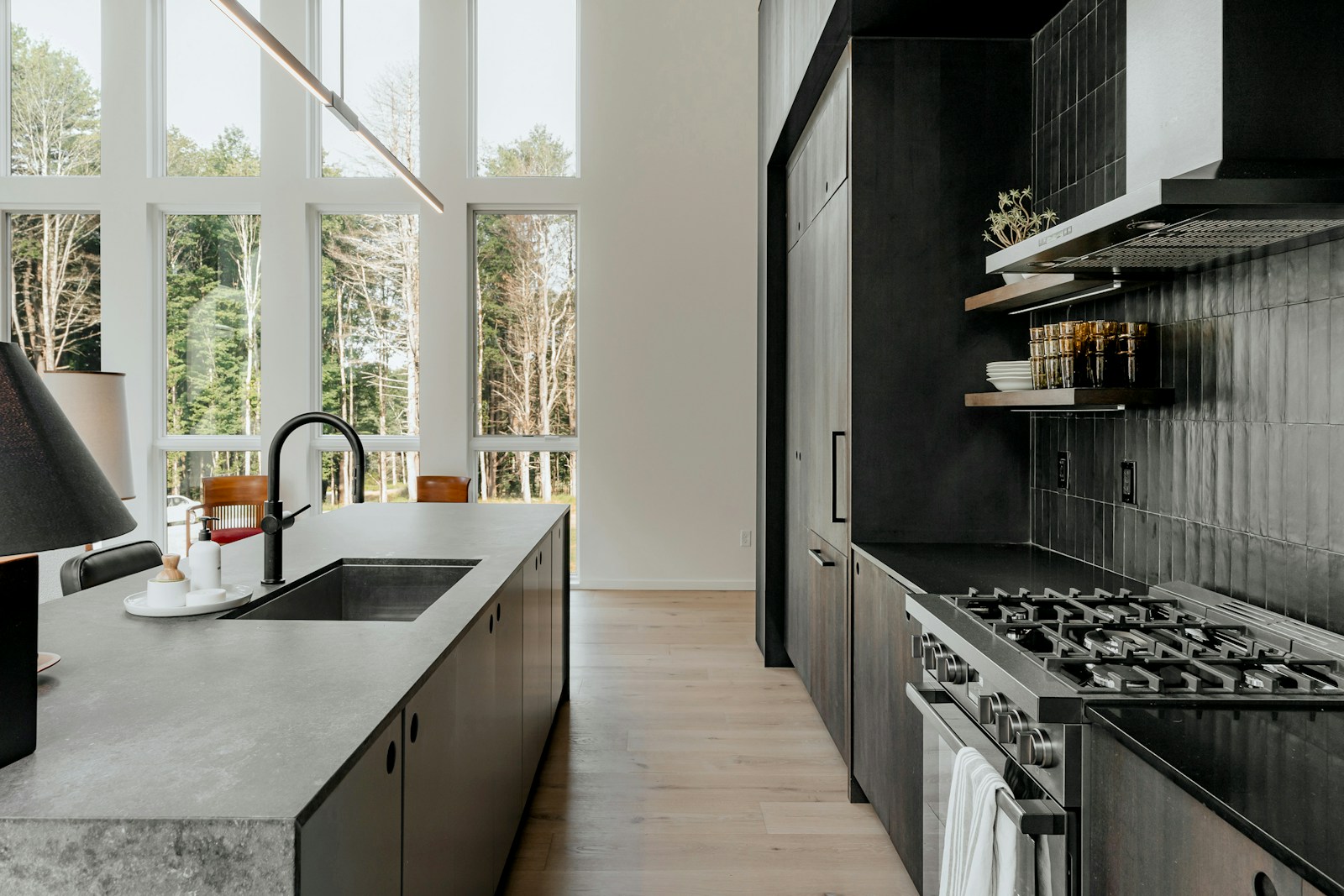Buying a luxury home is more than just purchasing a property—it’s about acquiring a lifestyle. Whether you’re looking for a stunning waterfront mansion, a chic downtown penthouse, or a sprawling estate in the countryside, luxury real estate offers a unique set of benefits and considerations. If you're ready to invest in the luxury market, here’s what you need to know to make the best decision.
1. Define Your Luxury Home Needs
Luxury homes come in various styles, sizes, and locations, so it's essential to define exactly what you're looking for before beginning your search.
Lifestyle Considerations: Are you seeking a peaceful retreat away from the hustle and bustle, or do you want to be close to urban amenities? Is proximity to the beach, mountains, or country club important to you? Consider how the property will fit your lifestyle.
Must-Have Features: Think about the features that matter most to you. Some buyers prioritize modern, smart home technology and sleek architectural designs, while others prefer timeless estates with traditional craftsmanship. Make a list of must-haves, whether it’s a private pool, a state-of-the-art home gym, or expansive outdoor living spaces.
Size and Layout: Consider the size of the home and how the layout will suit your needs. Whether you need multiple guest suites, separate wings for privacy, or large entertainment spaces, knowing these preferences in advance will help narrow your search.
2. Work with an Experienced Luxury Real Estate Agent
The luxury real estate market requires specialized knowledge and experience. Not all agents are familiar with the intricacies of high-end properties, so it’s essential to work with a professional who knows the luxury market inside and out.
Seek Out Expertise: Find a real estate agent with experience in the luxury sector who understands local trends, high-end property values, and unique buyer preferences. A skilled agent will have access to exclusive listings and the negotiation expertise to ensure you get the best deal.
Leverage Private Listings: Many luxury homes are sold through private or off-market listings that aren’t advertised publicly. An experienced agent will have connections to these listings and can help you access properties that may not be available on traditional real estate platforms.
Understand the Buying Process: The buying process for luxury homes can differ from standard real estate transactions, especially in terms of financing, contingencies, and appraisals. Your agent should guide you through each step, ensuring you understand the nuances of the transaction.
3. Understand the Local Market
Location is critical in real estate, and when it comes to luxury properties, understanding the local market is essential for making a smart investment.
Research Market Trends: Look at recent sales data for luxury properties in your preferred area to get a sense of pricing trends, demand, and supply. Some markets may experience fluctuations, especially for high-end properties, so it’s essential to time your purchase accordingly.
Consider Resale Value: Even if you plan to live in the property long-term, it’s important to consider its future resale value. Will the area continue to grow in popularity? Are there new developments planned that could impact property values? Understanding how the neighborhood or region is likely to evolve will help protect your investment.
Neighborhood Amenities: Luxury homes are often located in communities with exclusive amenities, such as golf courses, marinas, or private security. Research these perks to ensure they align with your lifestyle and contribute to the overall value of the property.
4. Get Pre-Qualified for Financing (Or Pay Cash)
Luxury homes often come with a higher price tag, and financing options can differ from those available for standard properties. Understanding your financing options ahead of time is essential to avoid delays or complications.
Pre-Qualification is Key: If you’re financing your purchase, it’s important to get pre-qualified or pre-approved for a mortgage before beginning your search. High-end properties often require jumbo loans, which can have stricter qualification requirements than standard mortgages.
Jumbo Loans vs. Conventional Loans: Jumbo loans are designed for properties that exceed the conforming loan limits, which vary by location. These loans usually have higher interest rates and down payment requirements, so it’s important to shop around for the best terms.
Paying in Cash: Many luxury home buyers choose to pay cash, which can strengthen your negotiating position. Sellers of luxury properties often prefer cash offers due to the reduced risk of financing complications.
5. Consider the Investment Potential
Buying a luxury home isn’t just about enjoying a lavish lifestyle—it’s also a significant financial investment. Consider the long-term value of the property to ensure you’re making a sound decision.
Location Drives Value: Homes in prime locations—whether it's beachfront, ski-in/ski-out, or located in a prestigious urban neighborhood—tend to retain their value better than homes in less sought-after areas.
Unique Architectural or Historical Features: Homes with distinctive architectural elements, historic significance, or designer touches can also have higher resale value, as they offer something unique in the market.
Potential for Appreciation: Research the growth potential of the area you’re buying into. Some luxury markets appreciate faster than others due to factors like economic development, lifestyle shifts, or increased demand from high-net-worth individuals.
6. Be Prepared for Higher Maintenance Costs
Luxury homes often come with unique features and larger square footage, which can mean higher maintenance costs compared to standard properties.
Property Management: Many luxury homeowners hire property management companies to handle day-to-day tasks like landscaping, pool maintenance, and cleaning. Factor in these ongoing costs when budgeting for your new home.
Homeowners’ Association Fees: If the property is part of a gated community or luxury development, there may be additional homeowners' association (HOA) fees. These fees can cover services like security, landscaping, and amenities, but they can add to your overall expenses.
Unique Features: Features like custom pools, smart home systems, and extensive landscaping may require specialized care. Ensure you understand the maintenance requirements and associated costs before purchasing.
7. Perform Thorough Inspections
While it’s always important to conduct home inspections before purchasing, this is especially crucial when buying a luxury property. These homes often have custom features, high-end materials, and unique systems that require specialized inspection.
Hire Experts: For a luxury home, you may need more than just a general inspector. Consider hiring specialists to inspect unique features like pools, home theaters, wine cellars, or smart home systems. Ensure they understand the high-end materials and systems in use.
Don’t Skip the Inspection: Even if the home looks perfect on the surface, there may be hidden issues. Luxury homes often have complex systems and extensive grounds that could require significant repairs if not maintained properly.
8. Understand the Legal and Tax Implications
Luxury real estate transactions often involve more complex legal and tax considerations than standard home purchases.
Property Taxes: Luxury homes often come with higher property taxes due to their higher market value. Work with your financial advisor to understand how this will impact your overall budget.
Ownership Structures: If you’re considering purchasing the home through a trust, LLC, or another entity, consult with a real estate attorney to ensure you structure the purchase in a way that aligns with your financial and privacy needs.
International Buyers: If you’re purchasing a luxury property as a foreign buyer, there may be additional regulations and taxes to consider. Be sure to work with professionals who specialize in international real estate transactions.
Conclusion
Buying a luxury home is an exciting venture that offers the opportunity to enjoy a premium lifestyle in a property that reflects your tastes and aspirations. However, the luxury market presents unique challenges that require careful consideration. By defining your needs, working with experienced professionals, understanding the local market, and being prepared for the additional costs associated with luxury properties, you can make a sound investment that enhances your lifestyle and retains its value for years to come.
Whether you’re looking for a chic urban penthouse, a beachfront estate, or a secluded mountain retreat, luxury home buying is about more than just finding the perfect house—it’s about investing in a lifestyle that suits your personal and financial goals.




